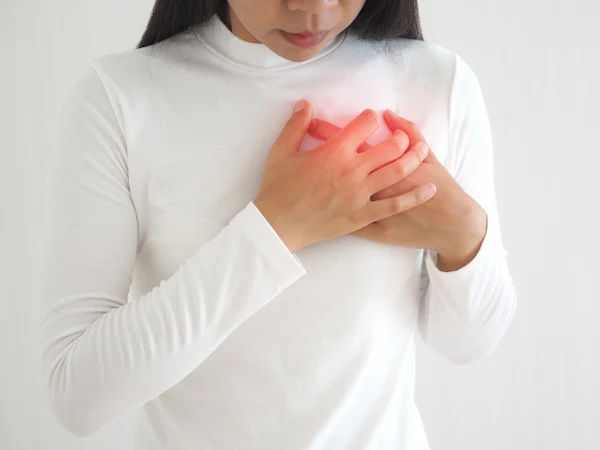- Male
- 38 Years
- 22/01/2025
I'm kind of worried because I'm experiencing this heaviness in my chest and sometimes have trouble breathing. Plus, there's this pain that hits suddenly, not all the time, but it can come out of nowhere. Should I be concerned?
Answered by 1 Apollo Doctors
The intermittent heaviness in your chest, breathing difficulties, and sudden pains may indicate underlying conditions such as angina, acid reflux, asthma, or anxiety attacks; to determine the cause, consult a cardiologist or a primary care physician for a thorough evaluation, including a physical examination, electrocardiogram (ECG), and possibly imaging tests like an echocardiogram or a chest X-ray.
Dr. Anshul Suggests...
Consult a Cardiologist
Answered 04/07/2025
0
0

More Cardiology Health Queries
View allI've just gotten some test results back and I'm a bit concerned. Most things seem to be in the normal range except for my Vitamin D 25 hydroxy and lipid profile. My Vitamin D 25 hydroxy level is at 32. For my lipid profile, my cholesterol is 206, triglycerides are 337, HDL is 35, LDL is 103.5, and VLDL is 67.5. Should I be consulting a physician or maybe even a cardiologist about this? I'm also curious about what precautions or medications I should consider to help lower my lipid profile and increase my Vitamin D 25 hydroxy levels.
Your vitamin D 25 hydroxy levels are lower than the normal range, and your lipid profile, specifically cholesterol and triglycerides, are elevated. To address these issues, you can take the following steps: 1. For Vitamin D deficiency (25 hydroxy level of 32): - You can take Vitamin D supplements such as "Calcirol" 60,000 IU once a week for 8 weeks, followed by maintenance therapy of "Uprise D3" 60,000 IU once a month. - Spend more time in sunlight as it helps in natural synthesis of Vitamin D. 2. For high lipid profile: - To lower cholesterol, you can take statin medications such as "Atorvastatin" 20mg once daily. - To lower triglycerides, you can take medications like "Fenofibrate" 160mg once daily. - Additionally, focus on a healthy diet low in saturated fats, cholesterol, and simple sugars. - Regular exercise and weight management can also help improve lipid levels. It is advisable to follow up with a physician for further evaluation and monitoring of your lipid profile and vitamin D levels.
Answered by 1 Apollo Doctors
I'm really confused about my ECG results. It said there was a downslope in the ST segment and T wave inversion, and they mentioned something about infero-lateral ischaemia. When I went for a pre-employment medical exam, I had an echocardiogram and a color Doppler test, and the doctor said not to worry but didn't prescribe any medication. I'm not sure what to do next. Is there actually ischaemia, or is everything okay?
the ST segment downslope and T wave inversion indicate infero lateral Ischaemia. Since you have already undergone an ECHOCARDIOGRAM and color Doppler test, and the doctor mentioned that there is nothing to worry about, it is likely that the Ischaemia is not severe and does not require immediate medication. However, it is important to follow up with regular check-ups to monitor your heart health. If you experience any symptoms such as chest pain or shortness of breath, please consult your doctor for further evaluation and management.
Answered by 1 Apollo Doctors
I'm 20 years old and I've been diagnosed with sinus tachycardia. I also have an overactive thyroid, and I've been told my heart's right ventricle is a little bigger than the left. Could all of this be a serious health risk?
Sinus tachycardia in the setting of an overactive thyroid can sometimes lead to complications, especially if left untreated. The enlarged right ventricle may be a result of the increased workload on the heart due to the tachycardia. It is important to manage both the thyroid condition and the tachycardia to prevent further complications. Medications such as Propranolol can be used to help control the heart rate and symptoms. Regular monitoring by a healthcare provider is essential to ensure proper management of your condition.
Answered by 1 Apollo Doctors
Disclaimer: Answers on Apollo 247 are not intended to replace your doctor advice. Always seek help of a professional doctor in case of an medical emergency or ailment.




